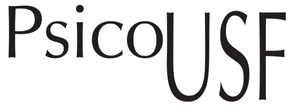Despite of the scientific and technological advances, belief in the paranormality has been rising in the last decades. However, there is not an agreement about its multidimensional structure. This study intended to accomplish two goals: to construct a scale of paranormal beliefs (QCP) and observe its dimensionality, and investigate its concurrent validity by correlating its results with those of the Rational versus Experiential Thinking Inventory. The instruments were administered to 206 participants and the results revealed that QCP is composed of four factors paranormal beliefs, common superstitions, evil vs. good, and spiritual protection. People with higher beliefs in the paranormal and common superstitions tend to prefer experiential thinking. The rational thinking style did not correlate significantly with any of the QCP factors. These results suggest the non-existence of empirical evidence to support the rational versus irrational dichotomy as a way of understanding paranormal beliefs.
Paranormal beliefs; Thinking styles; Measurement



